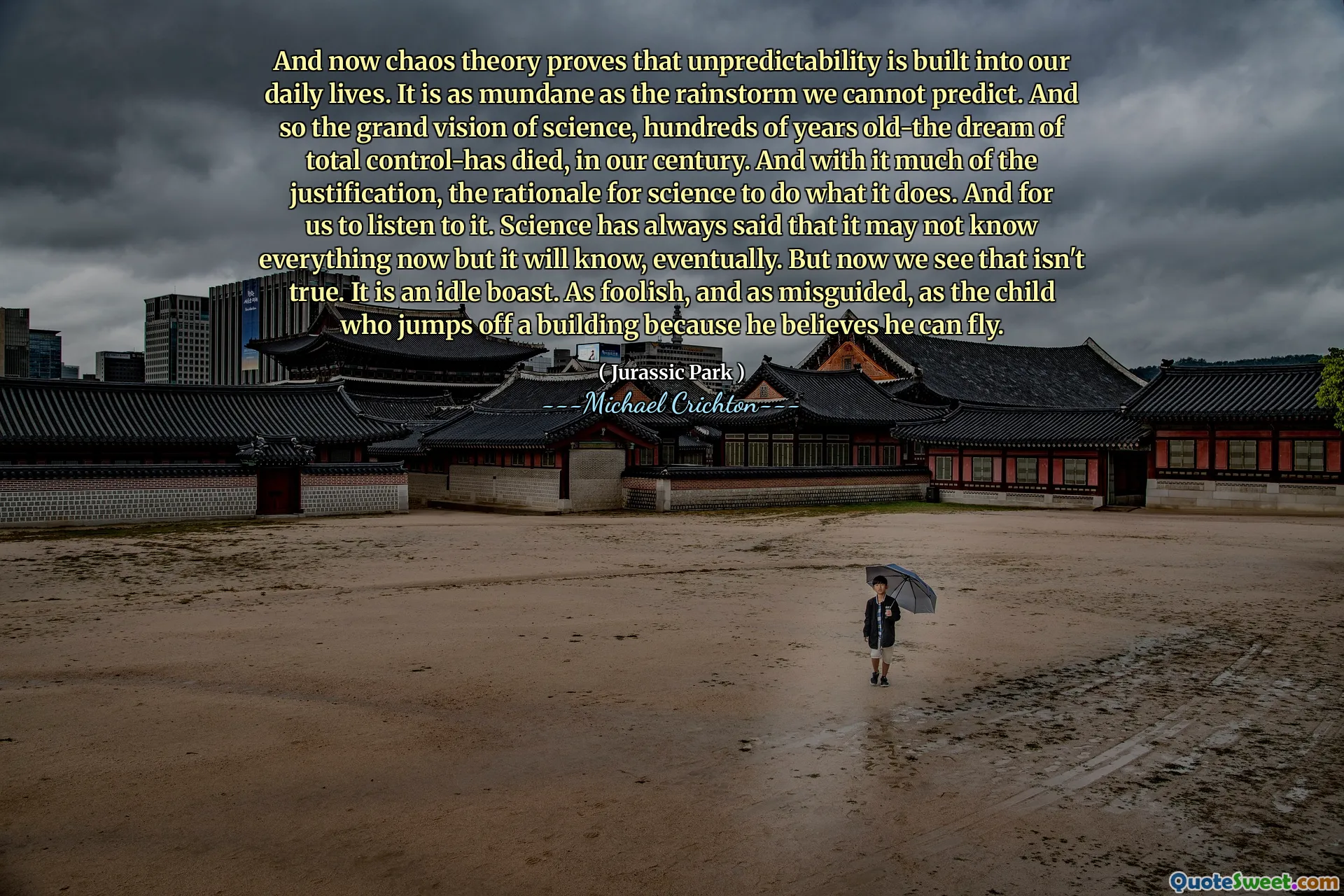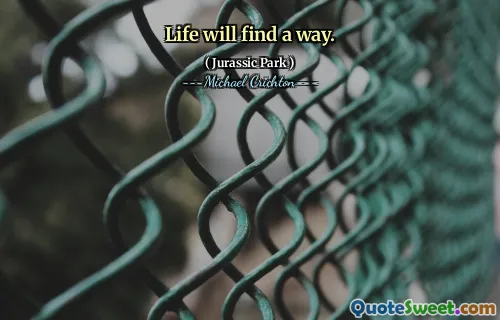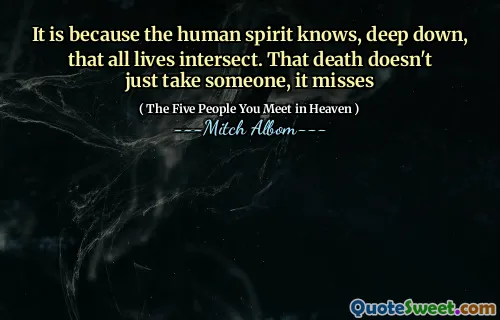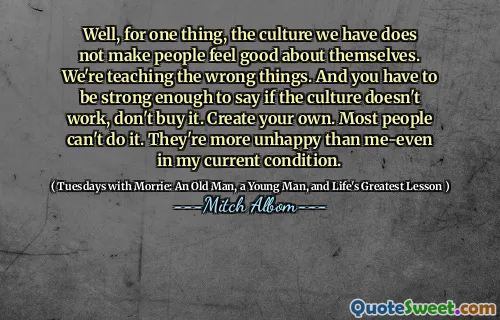
现在,混乱理论证明了我们的日常生活中不可预测性。它就像我们无法预测的暴雨一样平凡。因此,科学的宏伟愿景是数百年历史 - 全面控制的梦想在我们的世纪去世。而且,有很多理由,科学的理由是做自己的所作所为。并让我们听它。科学一直说,现在可能不了解一切,但最终会知道。但是现在我们看到这不是真的。这是一个空闲的夸张。像愚蠢的人一样愚蠢和被误导,就像那个跳下建筑物的孩子一样,因为他相信自己可以飞。
(And now chaos theory proves that unpredictability is built into our daily lives. It is as mundane as the rainstorm we cannot predict. And so the grand vision of science, hundreds of years old-the dream of total control-has died, in our century. And with it much of the justification, the rationale for science to do what it does. And for us to listen to it. Science has always said that it may not know everything now but it will know, eventually. But now we see that isn't true. It is an idle boast. As foolish, and as misguided, as the child who jumps off a building because he believes he can fly.)











